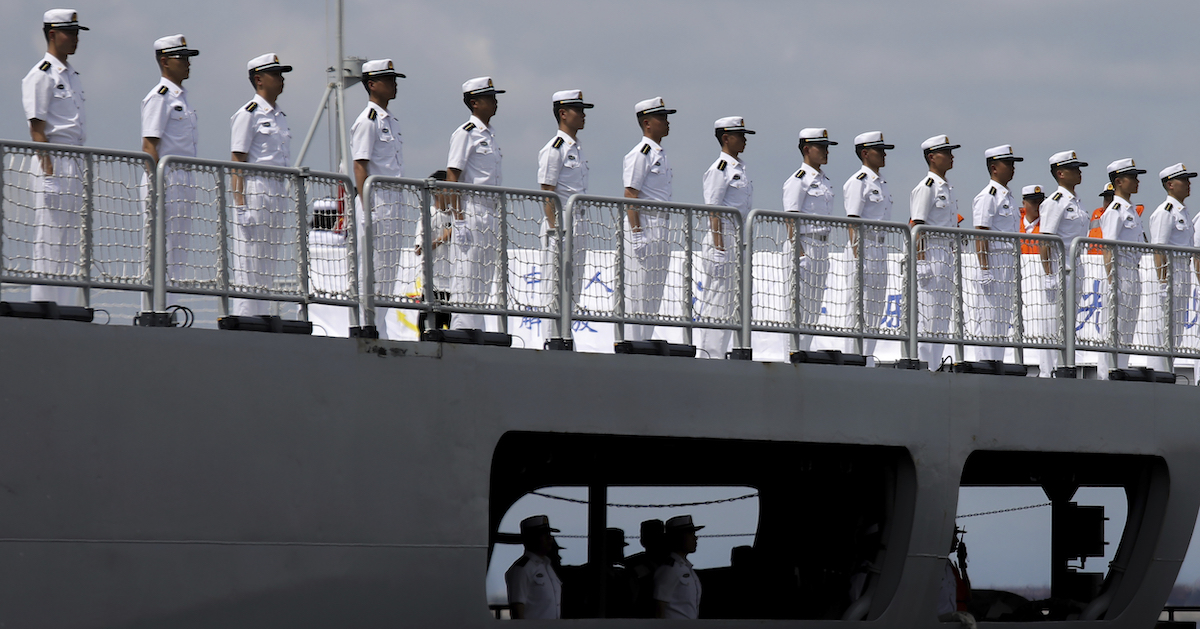Loading player
In 2023, for the first time, China built more ships in its shipyards than the rest of the world combined. For years now, China has been the country that produces the most ships in the world, both for civil and military use, but in recent years the industrial shift towards China has deepened. Its relevance in the field of naval trade is increasing hand in hand with its relevance in the field of the navy, and this worries various Western countries, starting with the United States.
The shipbuilding industry is now concentrated in a few countries in the world, mainly located in East Asia where more than 90 percent of new ships delivered last year were produced. The West, on the other hand, has residual market percentages: this shipbuilding decline, according to many experts, could also have major consequences from a military point of view.
According to data from the British company Clarkson Research which deals with maritime transport, with 51 percent of ship production, China is the most important shipbuilding player globally, followed by South Korea and Japan which have 24 percent respectively. one hundred and 15 percent of the world market; Europe represents only 5 percent. The geographical distribution of the industry has changed greatly over the last two decades: even in 2002, the share held by China in the shipbuilding market was very limited, around 8 percent. Europe, on the other hand, held 24 percent in the same year.
The exceptional increase in production of Chinese shipyards occurred in conjunction with China’s affirmation as the “factory of the world“, i.e. as the world‘s leading manufacturing country. Since its entry into the World Trade Organization in December 2001, Chinese industry has experienced a very rapid expansion which has significantly increased both exports of finished products to the rest of the world and imports of intermediate products and raw materials. The maritime transport sector linked to the country grew in parallel: because China, in addition to being an industrial power, also had to become a commercial power, capable of independently moving the goods it produced.
Chinese companies (often state subsidiaries of the Beijing government) have also benefited from this phenomenon, as they have taken advantage of their strategic positioning to grab an increasingly larger share of the shipbuilding market. Today, the industry’s production capabilities are reflected not only in the production of ships, but also in the size of the Chinese-flagged commercial fleet that last August has surpassed the Greek one establishing itself for the first time as the largest in the world in terms of tonnage overall gross (i.e. the overall volume of goods that it is capable of transporting).
From a technological point of view, however, China still lags behind its competition and its shipbuilding production is concentrated above all in the segment of lower-cost conventional vessels, such as container ships, the bulk carriers used for the transport of goods that do not go into containers. (such as cereal and mineral products) or tankers. South Korea, which with 26 percent of production is the second largest shipbuilding power in the world, is instead ahead in higher value market segments as in the construction of methane tankers for the transport of liquefied gas or cruise ships.
However, in recent years China has been making some progress in this field and last January it began operations first cruise ship built by a Chinese shipyard. The ship, called Adora Magic City, is the first produced by the joint venture between the China State Shipbuilding Corporation (CSSC), the largest Chinese shipbuilding company, and the US Carnival Corporation, a world leader in the cruise sector.
According to industry experts, Adora Magic City is based on technology already developed in Europe. However, Chinese shipyards have a significant advantage over their competition when it comes to attracting orders: thanks to extensive infrastructure and industrial capabilities, Chinese companies are able to significantly reduce delivery times, which helps attract customers.
The military question
However, China’s shipbuilding rise also concerns its military power. Over the years, China has managed to attract large orders from major shipping companies around the world, including countries such as France, Japan and even Taiwan. The commercial success of Chinese shipyards has allowed them to expand their infrastructure, expand their industrial capabilities and train a specialized workforce, which is not limited to civil shipbuilding production. CSSC, for example, in 2021 alone represented 21 percent of the entire shipbuilding market in the world but at the same time it was also the main manufacturer of ships used by the Chinese Navy.
According to what was said at Wall Street Journal by Matthew Funaiole, a researcher at the Center for Strategic and International Studies in Washington who deals with China, there are signs that indicate a growing fusion between the civil and military activities of Chinese shipyards.
The impact of China’s shipbuilding expansion on its military capabilities can be observed by looking at the fleet numbers of the People’s Liberation Army (PLA), China’s armed forces. If in 2005 the boats under the command of the PLA were 216, in 2022 they had become 351 and could reach 435 by 2030. For comparison, throughout this period the number of boats available to the United States Navy has been around to 290 units, and should remain so towards the end of this decade.
Although the US fleet is still qualitatively superior to China’s, US shipyards today are in a state of decline. In addition to minimal percentages of global shipbuilding production, U.S. manufacturers also suffer from chronic delays in ship deliveries. The almost exclusive focus on military production and the loss of share in civilian production has compromised the health of the shipbuilding companies that allowed the United States to establish itself as a maritime power in the last century.
– Read also: Who defends freedom of navigation in the world?
